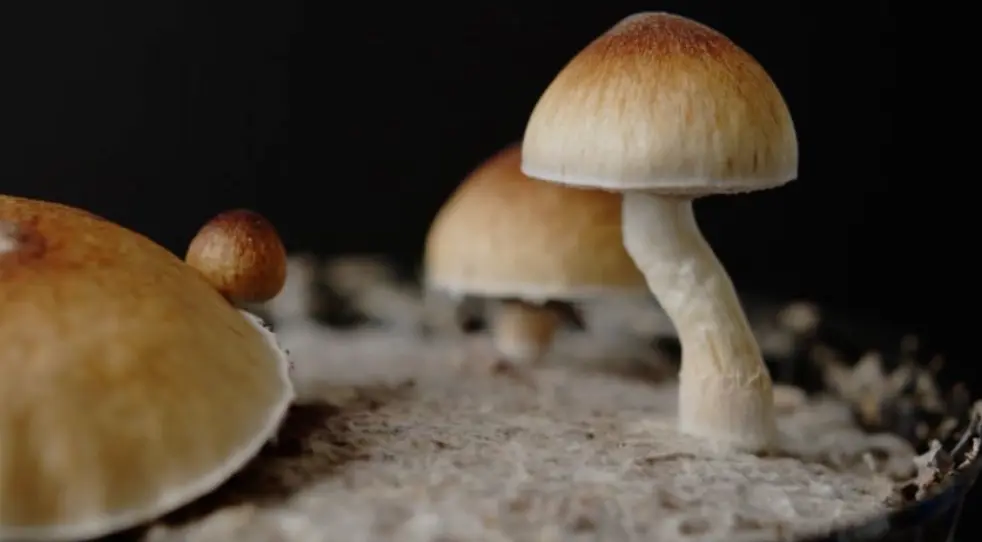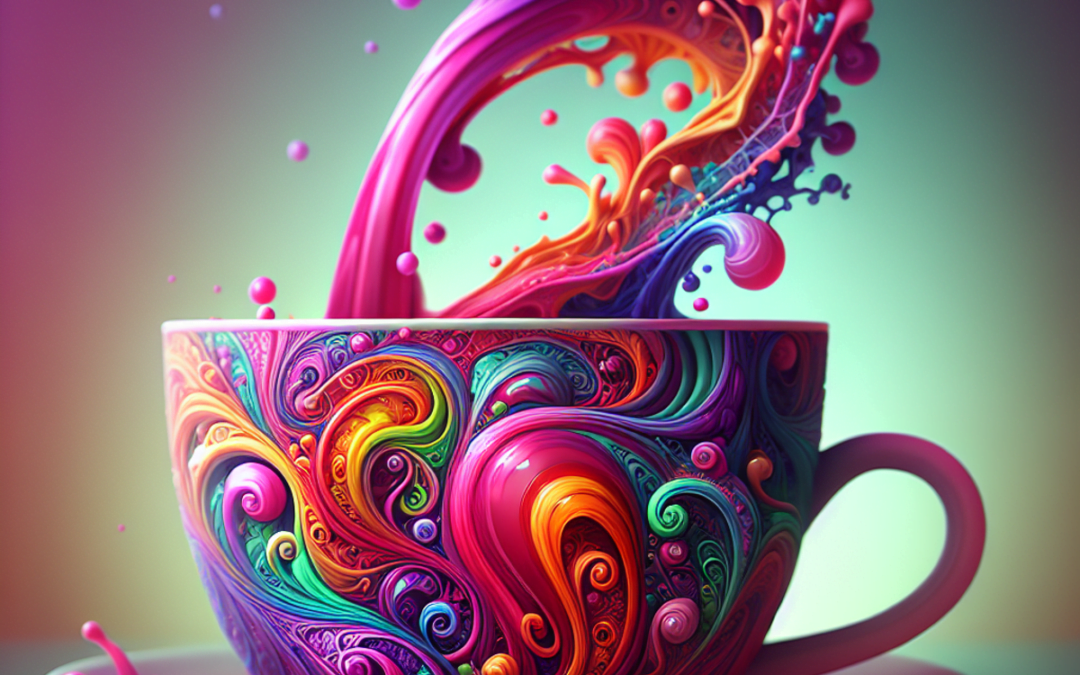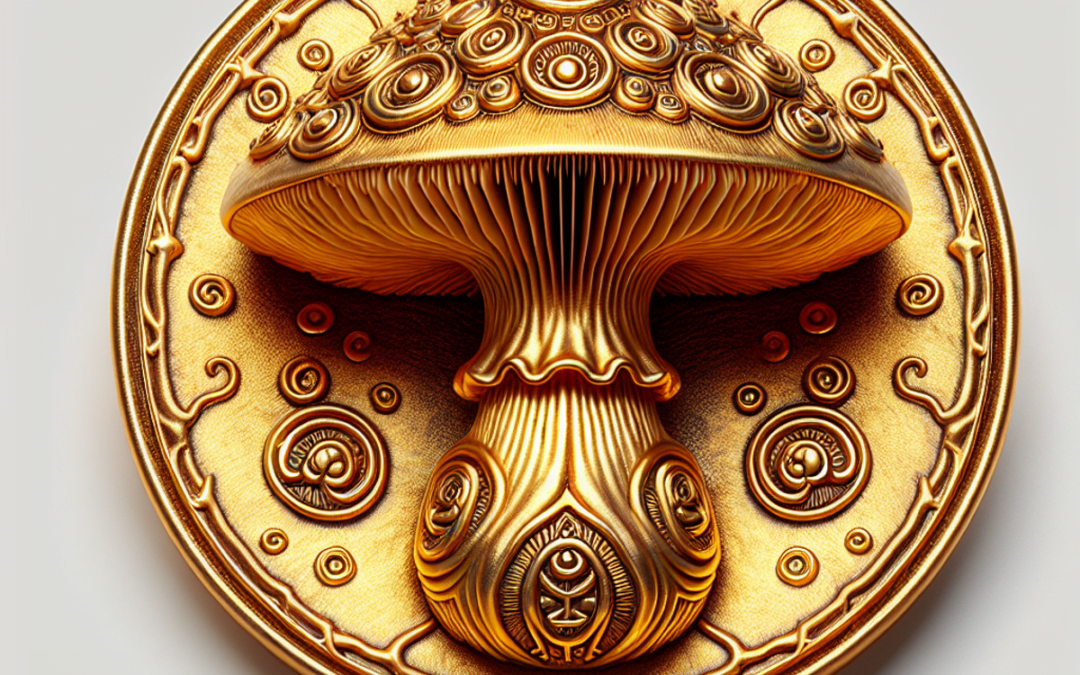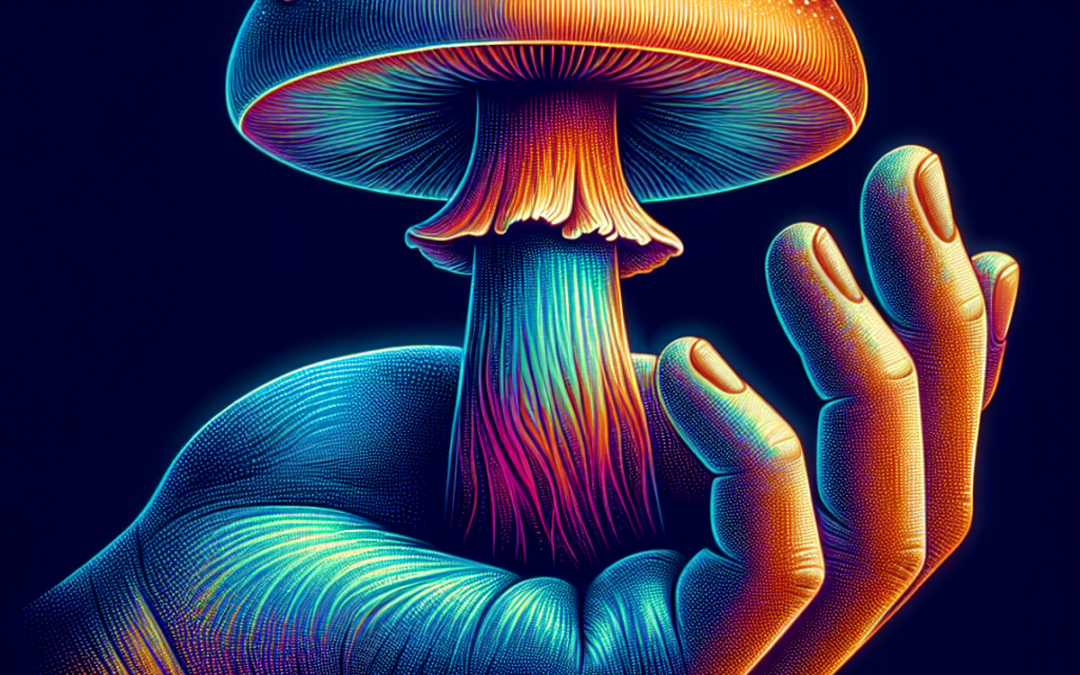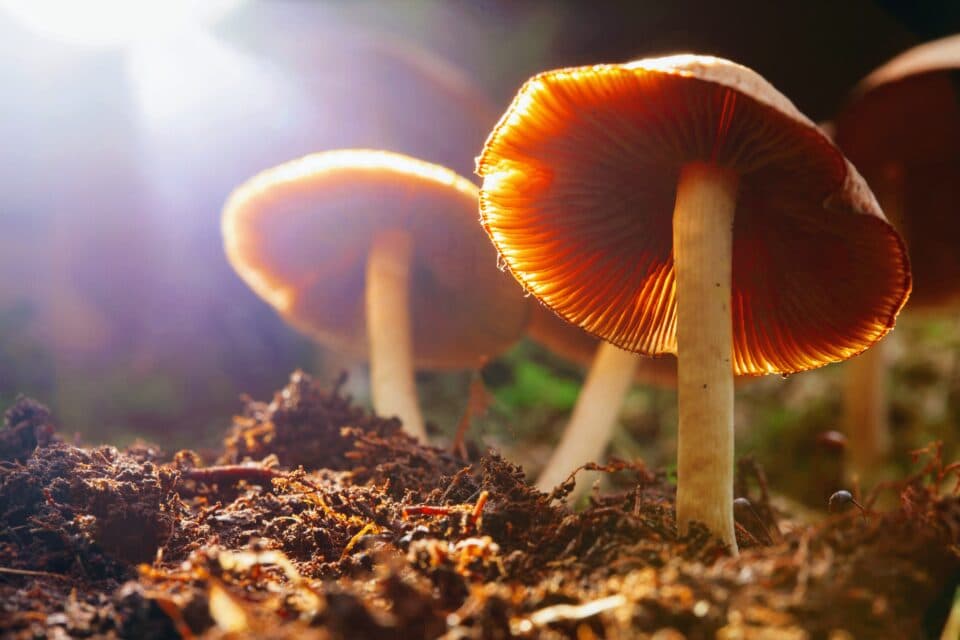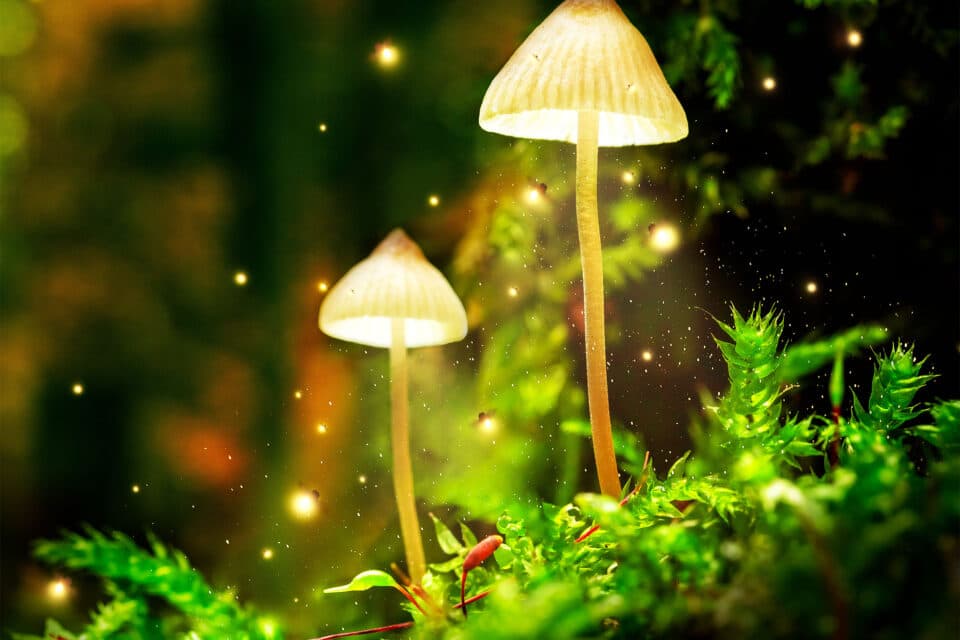CNN’s David Culver flew to Jamaica to take magic mushrooms … on camera here’s his experience
I ate the two small chocolates first, quickly followed by a handful of capsules, chased down with a few sips of water. Taking a deep breath and closing my eyes, I waited for the plant medicine, as it’s called, to take hold. This was not how I envisioned taking magic mushrooms, especially considering there were no actual mushrooms.
Instead, the psychoactive compound called psilocybin had been extracted and put into the chocolate and pills. I took the dosage recommended by our retreat facilitator and felt safe knowing there were experienced medical and psychedelic professionals close by. But truthfully, I was also anxious about having a bad trip and the thoughts and visions that might unknowingly surface during the experience.
I was even more concerned about what I might say and do with the cameras rolling and my CNN colleagues watching.
As a kid, I always played by the rules. In fact, I enforced them. Never one to be picked first — or at all — for childhood sports teams, I would volunteer to be the referee instead. In high school and college, I didn’t touch alcohol before I was legally allowed to drink. I even sat on my university’s judicial council. I never felt compelled to rebel or push the boundaries; I still don’t.
But as I researched a story late last year on Oregon’s legalization of psilocybin, I was intrigued when I talked to folks who seemed so passionate about the drug. No question, the recent studies on psilocybin are encouraging. The research suggests it could potentially curb various addictions, help with post-traumatic stress disorder (PTSD), ease anxiety, lessen depression … and much more. We’re living amid what some are calling a psychedelics renaissance, and psilocybin has been decriminalized in several cities and legalized for therapeutic use in Oregon and Colorado, each requiring strict regulation measures and limitations on where and how it’s consumed.
But experts also warn that it may not be for everyone, especially those who might be predisposed to certain mental illnesses. For those folks, taking psilocybin could lead to psychosis or other lasting mental conditions. That worried me too. There’s still a lot we don’t know about how psilocybin affects the brain long term, and some stress it’s too early to use as a treatment.
So, why do it?
Full immersion
My approach to storytelling has always been to immerse myself — appropriately and respectfully — in real-world experiences. It’s helped me better understand the characters, environment, and potential impact my stories might have on those reading or watching.
Admittedly, it’s a fine line. My Cuban mother’s persistent reminders to “never make the story about you” sit with me. I try to stay mindful of that and I’m sensitive to not overstep. Instead, I feel if I’m covering a story on the ground, as a reporter’s job requires, I should immerse myself up to the point where I’m an effective, and hopefully engaging, conduit of what’s happening around us.
I did this in Wuhan, China, in early 2020, covering the start of what was then a mystery illness. I did this two years later in Shanghai, living through the brutal zero-Covid lockdown where I, along with 25 million other residents, was reliant on government handouts for food and remained physically sealed inside my apartment. And I’ve done this on the US southern border, most recently hopping onboard a freight train in Mexico with migrants.
Partaking in a therapeutic, mind-altering journey through the consumption of magic mushrooms, so long as there might be value found in experiencing a trip on camera, seemed worth it. It also helped knowing that research shows the possibility of negative effects is greatly reduced under proper and experienced medical supervision.
We decided on a psychedelic retreat in Jamaica for a few reasons. Firstly, psychedelic mushrooms are legal to grow and consume in Jamaica. Secondly, it centered around a therapeutic, not recreational, approach to consuming psilocybin. And thirdly, I respected how the retreat’s founder initially rejected my request to follow a few participants from the US to Jamaica as they embarked on deeply personal journeys in search of inner healing.
I was told that being an outsider — let alone a journalist — looking on as folks revealed deeply intimate and personal struggles would not be appropriate and might be seen as more exploitative than beneficial. “What if I took mushrooms too?” I asked. “It’s more than taking the mushrooms,” the founder explained. “It’s about putting in the work before, during and after the retreat; it’s about going on the journey.”
“I’m willing to do that,” I replied, not fully understanding what I was about to embark on.
It helped that my doctor signed off after understanding a bit more about why I wanted to do this and the setting of the retreat. Like every other participant, I too had to undergo the retreat’s health screening process. While they have medical professionals on site for the retreat, they reject individuals predisposed to certain medical conditions or others who may not be suited for psilocybin intake.
Sharing
Among the handful of participants who signed up for the retreat and were willing to share their stories on camera were Johanna Buitrón and Jason Moss. After talking with them by phone, and then later meeting them in person, I was stunned by their vulnerability and willingness to share.
Like me, neither had taken psychedelics before. Johanna, originally from Ecuador but now living in Los Angeles, was seeking fulfillment and a deeper understanding of her life’s purpose; she felt a deep internal void that many can relate to. Jason, a successful attorney living in South Carolina, had a more specific goal: he wanted to stop drinking. For years he privately struggled with alcohol and feared it was impacting his home life. He wanted to go on camera with his story, in part, to hold himself accountable long-term. I admired them both.
But in my early conversations with the other participants, including over structured retreat Zoom calls to prepare for the journey, I was reminded that I wasn’t just a journalist chronicling their trips. “So why are you doing mushrooms?” Johanna asked me a few weeks before our scheduled retreat. It forced me to reflect.
Sure, I was doing it in part because I wanted to better understand their mind-altering journeys. But I also knew that I wanted to process some of my time living and working in China.
I willingly stepped into that foreign journalist position knowing the role came with its own set of unique challenges. However, what I didn’t expect was to be living within China’s essentially sealed-off borders for more than two-and-a-half years, isolated from loved ones back in the US and navigating some pretty extreme conditions, including the final 50 days I was forced to spend inside my Shanghai apartment.
I may be a rule follower, but I’m not naïve. Many of my colleagues have seen and covered far worse. But what weighed on me most was that I chose to stay on the assignment and, in doing so, avoided returning to my life back in the US. It meant not returning to bury, let alone fully grieve, my beloved grandmother, my uncle, and my dear friend Wendy.
Honestly, guilt consumed me at times. I wondered if this magic mushroom journey could help me confront some of that.
Deep awareness
The first dosing ceremony, as the retreat facilitators call them, left me feeling restless, bored and uncomfortable for about five hours, or until the drug wore off. It also left me underwhelmed, hungry and just wanting to sleep.
Had I built this up too much in my head? Was I carrying too many expectations? I started to think that I was among the few who may not experience any psychoactive reaction to mushrooms.
The second and final ceremony was a different story. Similar to the first one, all the retreat participants sat in a circle on chairs and couches under a covered porch with a view of the sea. The facilitators — those tasked with assessing our dosages and administering the psilocybin — handed us mugs with ground mushrooms already mixed in. It tasted a bit bitter and chalky, but we drank it.
As we started to feel the medicine impact our bodies, I felt it first as a slight paralysis and numbness in my face and jaws and then began to notice my breathing with a deep awareness. One by one we chose to lie down on beach chairs laid out on the resort property.
Following the advice of another participant, I chose to lie under a massive tree with a view of the sand and water. The waves soothed me as the psilocybin began to hit my mind. Some of us wore eye masks and ear plugs to delve deeper inside ourselves.
Without coming across as too … out there … while I saw the visual distortions you often hear about, it was the
palpable energy of loved ones — including those I lost while living in China — that sits with me today.
I began to feel it a little more than an hour into my session, when one of the facilitators knelt next to me and held my hand to comfort me (we consented to appropriate touch as part of the retreat).
As she wiped tears from my eyes with a tissue, I suddenly felt a jolt of energy. Watching the video back, it looked like an electric shock hit me. Unlike alcohol — which was really the only mind-altering drug I could best compare it to — I felt incredibly lucid and clear-minded on psilocybin.
The shock
The shock I felt was as though energy — which I could identify as my grandmother’s — had embraced me in a loving caress. In a strange visual distortion, every detail of the facilitator’s hand simultaneously transformed into my grandmother’s hand, down to the rings she wore.
The lingering sentiment was overwhelming, and while not hearing her voice or seeing her face, I felt my grandmother comforting me: “It’s ok. I feel you. I’m with you.” In those five to six hours of the trip, I felt the same energy from other loved ones who’d passed and those still living. At times, I sensed them as auras hovering around me.
Slowly, the guilt shrank. I emerged exhausted but feeling unexpectedly accomplished and at ease. Perhaps those energy encounters can all be explained by science; I’m fine with that. But it doesn’t negate the fact that it’s left me feeling a bit more at peace.
Source: Opinion: Why I flew to Jamaica to take magic mushrooms

